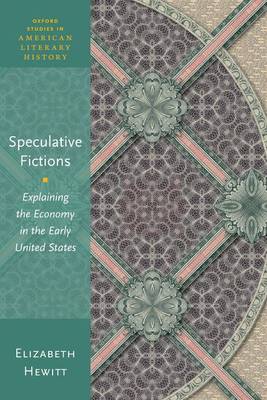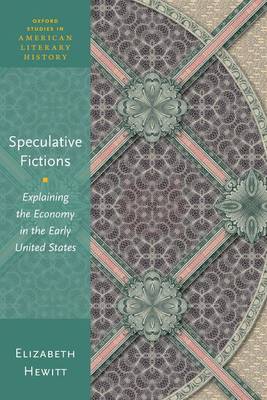
- Retrait gratuit dans votre magasin Club
- 7.000.000 titres dans notre catalogue
- Payer en toute sécurité
- Toujours un magasin près de chez vous
- Retrait gratuit dans votre magasin Club
- 7.000.0000 titres dans notre catalogue
- Payer en toute sécurité
- Toujours un magasin près de chez vous
72,45 €
+ 144 points
Format
Description
Speculative Fictions places Alexander Hamilton at the center of American literary history to consider the important intersections between economics and literature. By studying Hamilton as an economic and imaginative writer, it argues that we can recast the conflict with the Jeffersonians as a literary debate about the best way to explain and describe modern capitalism, and explores how various other literary forms allow us to comprehend the complexities of a modern global economy in entirely new ways. Speculative Fictions identifies two overlooked literary genres of the late eighteenth-century as exemplary of this narrative mode. It asks that we read periodical essays and Black Atlantic captivity narratives with an eye not towards bourgeois subject formation, but as descriptive analyses of economic systems. In doing so, we discover how these two literary genres offer very different portraits of a global economy than that rendered by the novel, the imaginative genre we are most likely to associate with modern capitalism. Developing an aesthetic appreciation for the speculative, digressive, and unsystematic plotlines of these earlier narratives has the capacity to generate new imaginative projects with which to make sense of our increasingly difficult economic world.
Spécifications
Parties prenantes
- Auteur(s) :
- Editeur:
Contenu
- Nombre de pages :
- 344
- Langue:
- Anglais
- Collection :
Caractéristiques
- EAN:
- 9780192871381
- Date de parution :
- 08-11-22
- Format:
- Livre broché
- Format numérique:
- Trade paperback (VS)
- Dimensions :
- 160 mm x 224 mm
- Poids :
- 544 g

Les avis
Nous publions uniquement les avis qui respectent les conditions requises. Consultez nos conditions pour les avis.






